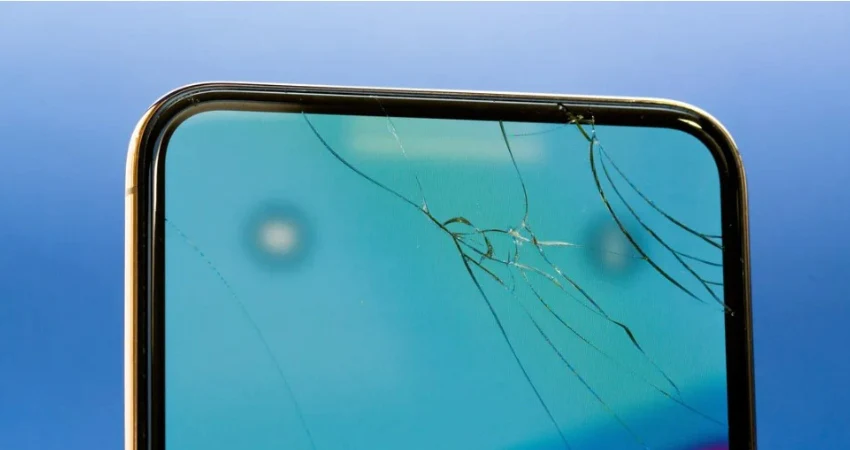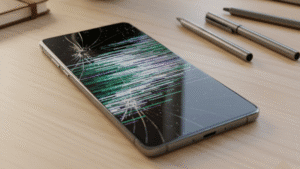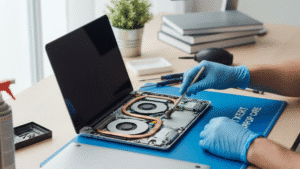
Whether it is worth repairing a broken mobile phone screen or not depends on a few factors, including the extent of the damage and the age of the phone. If the phone is relatively new and the screen damage is minor, such as a small crack or scratch, it may be worth repairing the screen. This can extend the life of the phone and save money compared to purchasing a new device.
However, if the phone is several years old and has multiple issues, repairing the screen may not be worth it. The cost of the repair may be close to or even exceed the value of the phone, and upgrading to a new device may be a more cost-effective option.
Ultimately, the decision to repair a cracked or broken mobile phone screen depends on individual circumstances and preferences. It is recommended to consult with a reputable phone repair service to determine the best course of action.
When to Replace the Phone Screen
It is generally a good idea to replace your phone screen when it is cracked or damaged, as it can affect the functionality of the device and potentially lead to further damage. Here are some signs that it may be time to replace your phone screen:
- Cracks: If your screen has cracks, even small ones, it can be difficult to use the phone and may even be a safety hazard if there are sharp edges.
- Dead Pixels: Dead pixels are small areas of the screen that do not display any information. This can be distracting and may interfere with the use of your phone.
- Unresponsive Touch Screen: If your touch screen is unresponsive or not registering touch inputs, it may be time to replace the screen.
- Flickering or Distorted Display: If the display on your phone is flickering, distorted, or showing strange colors, it may indicate a problem with the screen.
- Water Damage: If your phone has been exposed to water, the screen may become damaged or unresponsive, and it may need to be replaced.
If you are experiencing any of these issues with your phone screen, it is a good idea to have it replaced to ensure that your phone is functioning properly and to prevent further damage.
When to Buy a New Phone
A broken phone screen is one of the most common issues smartphone owners have to deal with. It can be frustrating and inconvenient, not to mention costly to have it repaired. In some cases, the cost of a repair might even exceed the value of the phone, making it no longer viable to maintain. But when is it time to bite the bullet and buy a new phone? Here are some things to consider.
Your old phone is worth less than the cost to fix the screen:
If your phone is more than a few years old, it may be worth less than the cost of repairing the screen. In these cases, it might be more cost-effective to buy a new phone outright. If you’re on a tight budget, shopping around for the best deal on a new phone may be a better option than paying a repair bill that costs more than the device itself.
Additionally, it’s important to consider the overall condition of your phone before deciding whether to repair or replace it. If your phone has other issues besides a cracked screen, such as a weak battery or outdated software, it may be more practical to invest in a new device that will last longer and provide better performance. It’s also worth noting that newer phones often come with improved features and technology, which can enhance your overall user experience.
Your phone is no longer eligible to receive security updates:
Many smartphone manufacturers only provide software updates for a limited period. This means that if your phone is older, it may no longer be eligible to receive security patches and new features. Not being able to keep your phone’s software up-to-date can make it more vulnerable to security risks, and could also impact compatibility with newer apps. In cases like these, it might be time to consider buying a new phone.
It is important to note that even if your phone is still receiving software updates, it may not be receiving security updates. Some manufacturers prioritize new features over security patches, leaving older devices vulnerable to cyber attacks. It is always a good idea to regularly check for software updates and security patches, and to consider upgrading to a newer device if your current phone is no longer receiving them.
You can’t wait long for a new screen:
If you rely on your phone for work or other important tasks, you might not be able to wait very long to have your screen fixed. Depending on the model of your phone, it may take several days or even weeks to get a new screen installed. In these cases, buying a new phone might be a more practical option – especially if you can’t afford the downtime that a lengthy repair might cause.
However, before you decide to buy a new phone, it’s worth checking if your phone is still under warranty. If it is, you may be able to get the screen repaired or replaced for free or at a reduced cost. Additionally, you can also consider taking your phone to a third-party repair shop, which may be able to fix your screen faster and at a lower cost than the manufacturer. Just be sure to do your research and choose a reputable repair shop to avoid any further damage to your phone.
Your phone is already on its last legs:
If your phone is already showing signs of wear and tear, such as slow performance, poor battery life, or frequent crashes, it might be time to start thinking about a replacement. Having to repair a damaged screen on top of other existing issues can quickly add up in terms of cost, time, and hassle. In these cases, buying a new phone may be the more logical choice – especially if you use your phone on a daily basis for personal and work-related tasks.
In conclusion, deciding whether to repair or replace your phone when the screen is damaged should depend on several factors. If your phone is older, and its value is less than the cost of repair, then it might be worth buying a new one. Additionally, consider the availability of security updates, how urgently you need your phone, and whether your device is already showing signs of wear and tear. Ultimately, the choice comes down to your individual circumstances, preferences, and budget.

It’s also important to consider the environmental impact of repairing or replacing your phone. Electronic waste is a growing problem, and disposing of old devices can have harmful effects on the environment. If your phone is still functional and can be repaired, it may be a more sustainable option to fix it rather than buying a new one. Additionally, some manufacturers offer trade-in programs or recycling options for old devices, which can help reduce electronic waste and minimize your carbon footprint.
How to select the best screen protector for my phone
When selecting a screen protector for your Phone, there are a few key factors to consider:
- Material: Screen protectors are typically made from tempered glass or plastic. Tempered glass is more durable and provides better protection against scratches and impacts, but can be more expensive. Plastic protectors are more affordable but may not provide the same level of protection.
- Thickness: Thicker screen protectors are generally more durable and provide better protection, but can also be more noticeable on your phone’s screen. Thinner protectors may be less noticeable but may not offer the same level of protection.
- Coverage: Some screen protectors only cover the flat part of the screen, while others cover the curved edges as well. Full-coverage protectors provide better protection but may be more difficult to install and may not be compatible with certain phone cases

- Compatibility: Make sure to choose a screen protector that is specifically designed for your Phone model. Using a protector that is not compatible can result in poor fit and reduced protection.
- Brand and Reviews: Choose a reputable brand with good reviews to ensure that you are getting a high-quality product. Look for reviews that mention durability, ease of installation, and how well the protector fits with your phone case.
Overall, the best screen protector for your Phone will depend on your individual needs and preferences. Consider the factors above and do some research before making a purchase to ensure that you are getting the best protection for your phone.



